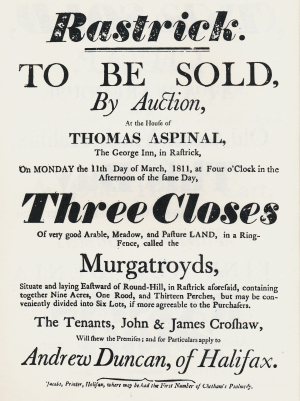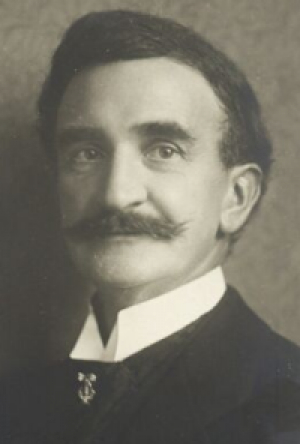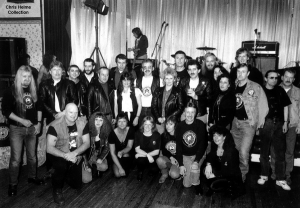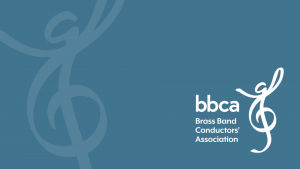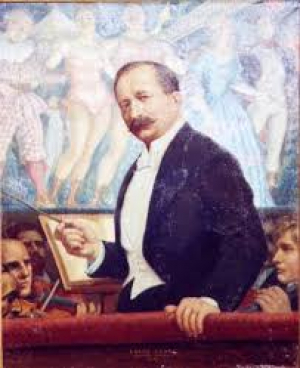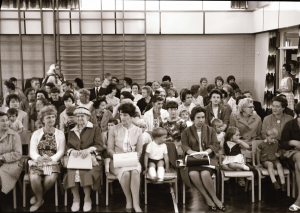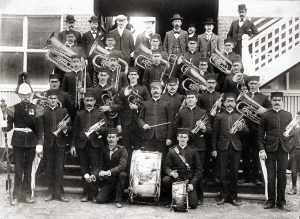
Talk Subjects
Chris Helme
Here is an advertisement for a land sale in Rastrick 210 years ago. This land was ring fenced and could be split into six lots if that would help potential purchasers.
Oscar Fetrás (16 February 1854 – 10 January 1931) was a German composer of popular dance music, military marches, piano pieces, and arrangements.
He had over 300 compositions to his name and his best-known is his waltz "Mondnacht auf der Alster" (Moonlight on the Alster) Op. 60 which is still very popular today.
He was born as Otto Kaufmann Faster in Hamburg. His father Matthias Faster was an editor of a stock-exchange magazine. The family originally came from Bützfleth, a locality of today's Stade near Hamburg.
Early in his career he worked for Ferdinand Laeisz founder of the Flying P-Liner (The Flying P-Liners were sailing ships). Gradually he became widely regarded as being on the same level as the Viennese waltz kings. Aged 26, his compositions attracted the attention of a Hamburg publisher, who advised him to change his name. He changed his name to Fetrás, an anagram of his surname Faster.
It might have been Franz von Blon, at that time the conductor of the Stadttheater Orchestra, who introduced "Moonlight on the Alster" at the inaugural concert for the 1888 ball season. It was a sensation and earned Fetrás the title of "The Hamburg Waltz King".
He remained well-known and respected and though definitely a second rank composer in the Viennese style, he produced some 300 works. Fetrás died January 1931 in Hamburg and was buried in the Ohlsdorf Cemetery.
In 1943, during the bombing of Hamburg during the Second World War the original score of "Moonlight on the Alster" was destroyed. Much of his work has disappeared from the mainstream repertoire since then. This was primarily due to the many outlets of music publishers and music parts libraries which issued his material being destroyed during the bombing which left no publishers to issue his material to this day.
In Hamburg-Rahlstedt the street Fetrasweg is named after him.
Today, we feature his best known waltz – "Moonlight on the Alster".
Brighouse Motor Cycle Club members and friends attending a New Year Party 1987. Whilst that was 34 years ago perhaps some of those who attended that celebration and are on this photograph still live in Brighouse or in one of the surrounding communities. If you are I would like to hear from you - what happened to the club and when did it close down?
Brass Band Conductors’ Association announces 2021 Virtual Conducting Competition The Brass Band Conductor’s Association (BBCA) has announced that it will once again be holding its flagship Conducting Competition, this year as a virtual event, with judging of the three finalists taking place online on June 27, 2021.
Louis-Gaston Ganne - 5 April 1862 – 13/14 July 1923, was a conductor and composer of French operas, operettas, ballets, and marches.
Ganne was born in the Auvergne region of France and grew up in a suburb of Paris. He studied under César Franck and Jules Massenet at the Conservatoire de Paris. He conducted at the Nouveau Théâtre de la Rue Blanche and at the Folies-Bergère, and later led a concert series at the Monte Carlo Casino.
He is recognised today for his popular patriotic marches, Le Pere la Victoire and La marche Lorraine. He also composed for the ballet, including the 1902 ballet "In Japan". He is less well known outside his native France, and his many operettas are now rarely performed. His most successful light opera is the circus musical Les Saltimbanques (The Acrobats), from 1899.
During his lifetime was regarded as one of the leading composers of lighter music in France. He had scarcely left the Conservatoire when he started to make a name for himself as the composer of marches, waltzes and mazurkas. For many years he was in charge of music at the Monte Carlo Casino, where he directed a very popular concert series, Les Concerts de Louis Ganne. He is remembered most for his Marche Lorraine (1892), using an old folk-song from the district. During the Second World War, this march had a special significance as a battle song for the Free French and their allies.
Today we are featuring March Lorraine which is still a popular march on the brass band concert circuits. Our performance is from the Morris Concert Band conducted by Harry Mortimer in 1970.
I received some nice feedback this afternoon following my latest Zoom presentation 'All in a Days Work' this morning. If your group is looking for a zoom presenter please contact me through this website or telephone 07854-755756 to discuss the posibility.
Thanks for the talk. As the chairman said, it was one of the most entertaining talks that he’d heard for a long time. I always find zoom talks a bit odd because the whole audience is muted and you can’t tell if they are enjoying it, but they obviously did.
Best regards
Derek Arnell
Speakers Secretary
Knutsford Tatton Probus Club
Woodhouse Primary School concert in 1967. Were any of your family members in the audience to watch you take part in this big school event of the year?
The 20th Century march was written by James Ord Hume to welcome in the new century and was the 1st prize winner in the Champion Journal's 'Five Guinea March Competition'. The newly formed Geelong Town Band of Australia gave the premiere in 1900. This turned out to be one of his most popular marches. During World War II the printing plates and original proofs were destroyed in the blitz. This has resulted in the march not being published since that bombing.
Talks Available
All the presentations are timed to last up to an hour except where shown - questions are gladly taken after the presentation. All have been presented to male, female and mixed audiences of varying age groups.
-
A Postcard from the Past
The Sunny Vale Pleasure Gardens, Halifax - Yorkshire’s Alton Towers of the…
-
All in a Days Work
Reminiscences from 30 years in the Police Service – (humorous lecture presentation)…
-
Legends from the world of Brass Bands
(Info-tainment – digital slides & music) – 1 hour presentation.
-
A Week in May
A story based on the Murder of Lord Frederick Cavendish (of the…
- Memories of Christmas Past
-
The Road to Publication
In 1979 I was asked to assist in presenting a series of…
-
How we used to live
We have all seen and experienced changes in our lives. Bring back…
- Holiday Memories from the Past
-
Other Folks Rubbish (Not suited to a Zoom presentation)
With a local history theme… – (thought provoking humorous lecture presentation) –…
- So you want to be a Pirate ? - The life of a Pirate was not all that it seemed
- Superstitions, New Year Resolutions and the Origins of St Valentine's Day
- Brighouse at Work
-
Sorry but I am not able to accept any more face to face talk bookings at the present time ONLY ZOOM TALKS


